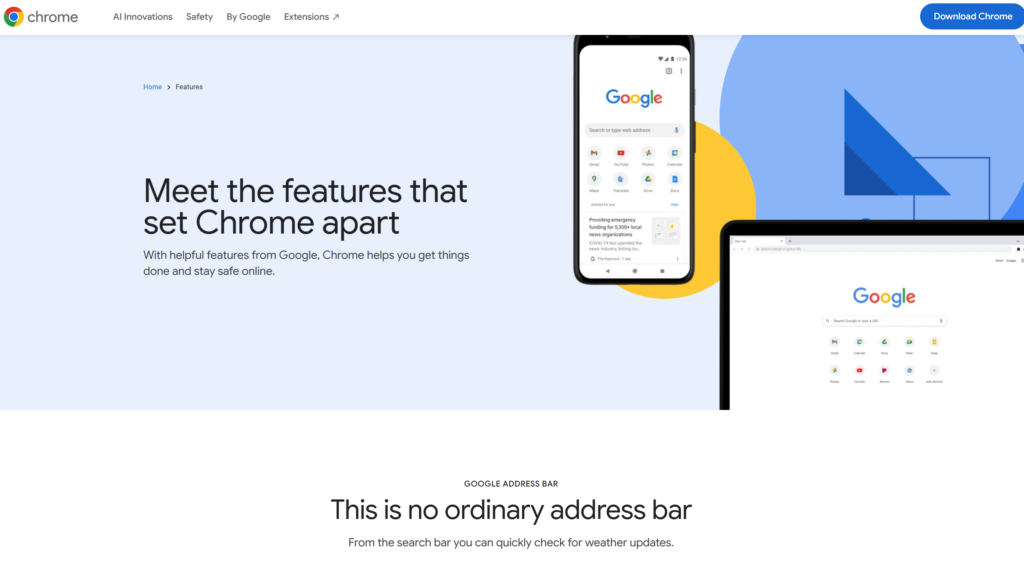The United States Department of Justice (DOJ) is making headlines with its aggressive stance against Google’s alleged monopolistic practices. Central to this fight is a proposal to fundamentally restructure Google’s business operations, including a potential forced sale of the Chrome browser. This unprecedented move has sparked widespread debate, touching on issues of competition, user privacy, and the future of digital innovation.
The DOJ’s Proposals
The DOJ aims to dismantle Google’s dominance in the search and browser markets through a series of sweeping measures:
- Divestiture of Chrome: Forcing Google to sell its Chrome browser to level the competitive playing field. Chrome currently controls over 66% of the global browser market and is a key driver of traffic to Google Search.
- Restricting Partnerships: Ending exclusive agreements, such as Google’s billion-dollar contracts with Apple, that make Google the default search engine on popular devices.
- Banning Browser Market Re-entry: Prohibiting Google from re-entering the browser market for at least five years if Chrome is sold.
- Sharing Search Data: Requiring Google to make its search index and results available to competitors.
- Curbing AI Expansion: Blocking Google from acquiring or investing in rivals within the search and artificial intelligence sectors.
If these measures fail to restore competition, the DOJ suggests an even more drastic step: divestiture of the Android operating system.
Google’s Response
Google has vehemently opposed the DOJ’s proposals, labelling them as “staggering” and “extreme.” The company warns that such measures could:
- Compromise Product Quality: Google argues that breaking up its integrated ecosystem could degrade user experience and product functionality.
- Threaten User Privacy: Concerns have been raised about whether a fragmented Chrome could adequately protect user data.
- Hinder Innovation: Google suggests that these regulations could stifle technological progress, particularly in artificial intelligence, where it sees itself as a leader.
Kent Walker, Google’s President of Global Affairs, stated that these moves represent a “radical interventionist agenda” that risks harming both consumers and American tech leadership.
The Potential Impact on Competition and Innovation
The DOJ’s proposals are designed to foster greater competition in the browser and search markets. Breaking Chrome away from Google could open opportunities for smaller competitors to thrive. However, the potential for another tech giant to acquire Chrome raises questions about whether the market dynamic would truly change or simply shift dominance from one player to another.
There are also concerns about whether Chrome can sustain itself as an independent entity. Without Google’s ecosystem to support its development, critics worry it might turn to less ethical revenue models, such as selling user data, to remain profitable. Stricter privacy regulations worldwide could further compound these challenges.
From an innovation perspective, Google’s critics argue that the company’s integration of its products has created an ecosystem that favours its services at the expense of competitors. They believe a forced sale of Chrome could level the playing field, spurring creativity and competition in the industry. Conversely, Google maintains that breaking up its products would stifle innovation and hinder progress in fields like artificial intelligence.
Broader Concerns About Information Access
A central issue in this case is the potential impact on information access. Critics fear that splitting Chrome from Google could lead to biases in search results or even censorship. If the new owner manipulates Chrome’s algorithms to prioritise specific content, it could undermine the open nature of the internet.
Additionally, concerns about misinformation and manipulation could arise if the browser’s infrastructure is not maintained to current standards. Without Google’s resources, Chrome’s functionality and security might suffer, potentially impacting millions of users worldwide.
What Happens Next?
Judge Amit Mehta, who ruled earlier this year that Google maintained an illegal monopoly, is set to hear proposals from both sides in April 2024. A final ruling on remedies is expected by August 2025. However, Google plans to appeal any unfavourable decision, potentially dragging the case into a years-long legal battle.
Meanwhile, the outcome of the upcoming US presidential election could shift the DOJ’s approach. President-elect Donald Trump has made conflicting statements on the issue, at times supporting and opposing a Google breakup. The stance of his administration could significantly influence the case’s trajectory.
What’s at Stake?
At its core, this case represents an existential challenge to Google’s dominance in the digital ecosystem. The DOJ’s proposed remedies could reshape how browsers and search engines operate, potentially opening doors for smaller players or paving the way for another tech giant to take Chrome’s place.
For users and businesses alike, the case raises critical questions about privacy, accessibility, and innovation in a post-Google-dominated internet. Whether these proposals lead to meaningful competition or unintended consequences, the outcome will undoubtedly have far-reaching implications for the future of digital technology.




RECOMMENDED FOR YOU
Google Rebuilds Checkout For AI Shopping
Agentic shopping has moved from theory to reality, and…
Agentic shopping has moved from theory to reality, and…
Google AI To Power Apple’s Siri
Apple has officially teamed up with Google in a…
Apple has officially teamed up with Google in a…
Google’s Nano Banana AI App Fuels Growth
Google’s latest AI success story is not a productivity…
Google’s latest AI success story is not a productivity…